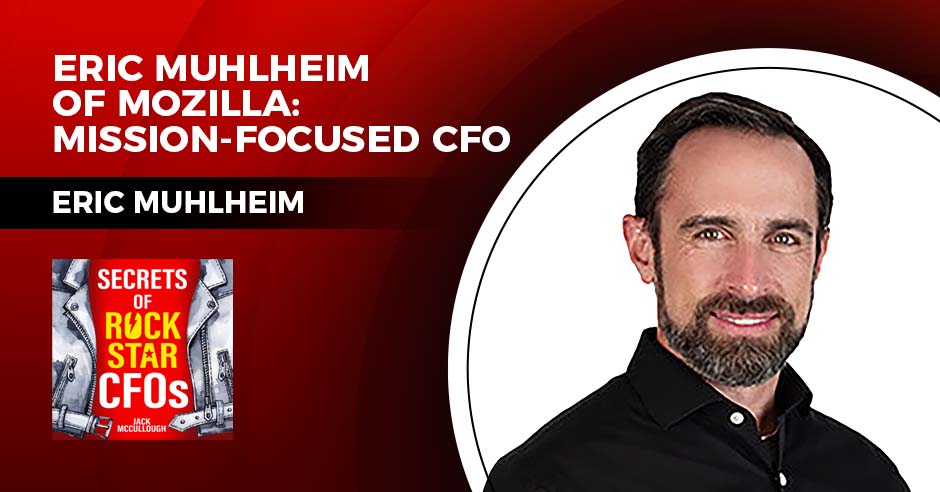Agility is a critical skill today, argues John Schwab, CFO of Vertex, a tax compliance software and services company based in King of Prussia, Pennsylvania. He urges finance chiefs to be on top of business changes and able to act quickly. “These days,” he says, “there’s no time to be nuanced.”
Schwab spoke with StrategicCFO360 about his own priorities, why CFOs should deal with problems as soon as they pop up and who he spends the most time with outside of the finance team.
What finance trends are you seeing for the rest of 2023? Can you highlight one within your industry and one overall trend that all CFOs should pay attention to?
All businesses have seen that higher interest rates are a reality and this has changed competitive behavior. In our industry, there has been a recalibration of prioritization of growth at all costs toward more sustainable durable growth and profitability.
Profitability is now top of mind for analysts and investors—you must know about the levers of profitability and what you can do to influence them. However, companies need to continue to be mindful that these trends will evolve and there needs to be a balance between profitability and investing in future products and markets for the businesses that they lead.
All of the levers, including new business pipeline and being mindful of cost controls, need to be monitored. Those of us working in finance need to understand where we can start to reduce costs by doing things smarter and more efficiently leveraging people and technology. Additionally, it’s important to continuously innovate and assess the ability to best use technologies to drive costs from the model.
And further it’s about ruthless prioritization. You need to ensure that with limited resources those efforts are focused on executing on initiatives that have the best returns. This needs to be constantly evaluated, ensuring that the things that remain top focus points haven’t shifted and the outcomes are attainable within the expected timeframes. While conditions are uncertain, you need to be agile and adaptable to stay on top.
You are a CFO in a niche industry—how does a finance strategy differ for a tax technology company compared to a strategy created for a broader commercial industry?
Tax software is mission critical to businesses and necessary for them to be able to operate and remain in compliance. Because of this criticality and the fact that the software is “line-item invasive” in that it touches every line of every invoice, we enjoy a very high customer retention rate and more than 85 percent of our revenue is recurring. This provides a more predictable revenue stream than other industries and allows us to focus on our customers and specifically create more products that allow them to advance the needs of their businesses.
However, we, like other companies, are focused on execution. Especially with some of the global economic uncertainty, we are laser-focused on closing rates and pipelines. This is very important because the slightest changes in the economy are going to have bigger impacts for different companies. As we see changes start to emerge we need to be agile and pivot the business to account for the changing demands by adjusting our spend and other initiatives.
How do you collaborate with other departmental leaders at Vertex? What approaches have you implemented that proved successful for smooth business operations?
The linkage between the executive team is tremendously important. CFOs don’t exist in a bubble—it’s a people business no matter what you’re doing.
There are different demand drivers and it’s important to consistently stay in touch with them.
It starts with an understanding of sales and marketing. I recommend spending time with the go-to-market teams to get a sense of what the customer is feeling, and current demand. This influences the pipeline and gives perspective to the forecasts as they evolve.
In addition, I spend a lot of time with our human resource team. More than 70 percent of the total cost of our company is personnel-related costs and that is the team that we are going to rely on to achieve the enterprise objectives. It’s important to be aware of all the different activities that are going on in the business because when you’re managing a business, there’s virtually an unlimited number of items that people want to get done. Each different group has initiatives they want to focus on and being able to understand the initiatives helps inform prioritization.
At the end of the day, it comes down to being very strategic about the rationalization of the resource that you have and knowing the allocation of spend between initiatives. Leaders need to have a process for evaluating the most opportunistic projects—between the cost of implementation and understanding how they will drive short, medium and long-term success for the business. When everyone’s working together with the same view of strategic objectives, decisions become more clear.
Based on lessons you have learned throughout your career, what are two key pieces of advice for other CFOs?
If you’re going through a difficult situation or topic, chances are others are as well. Leverage someone within the company, such as the senior management team, or even outside your company for a fresh perspective.
Additionally, be able to address problems head on. These days, there’s no time to be nuanced—you really need to act with purpose and be able to confront whatever issues arise. Problems typically don’t get better with time. As you size the problems up and get information about them, address those things immediately and move to the next issue.
Far too often, people are faced with business challenges they push aside. By the time you get back to them, they have manifested into bigger problems. Understand that you might not have all the answers but be able to lean on others for support and be agile in the processes and decisions that you make.








